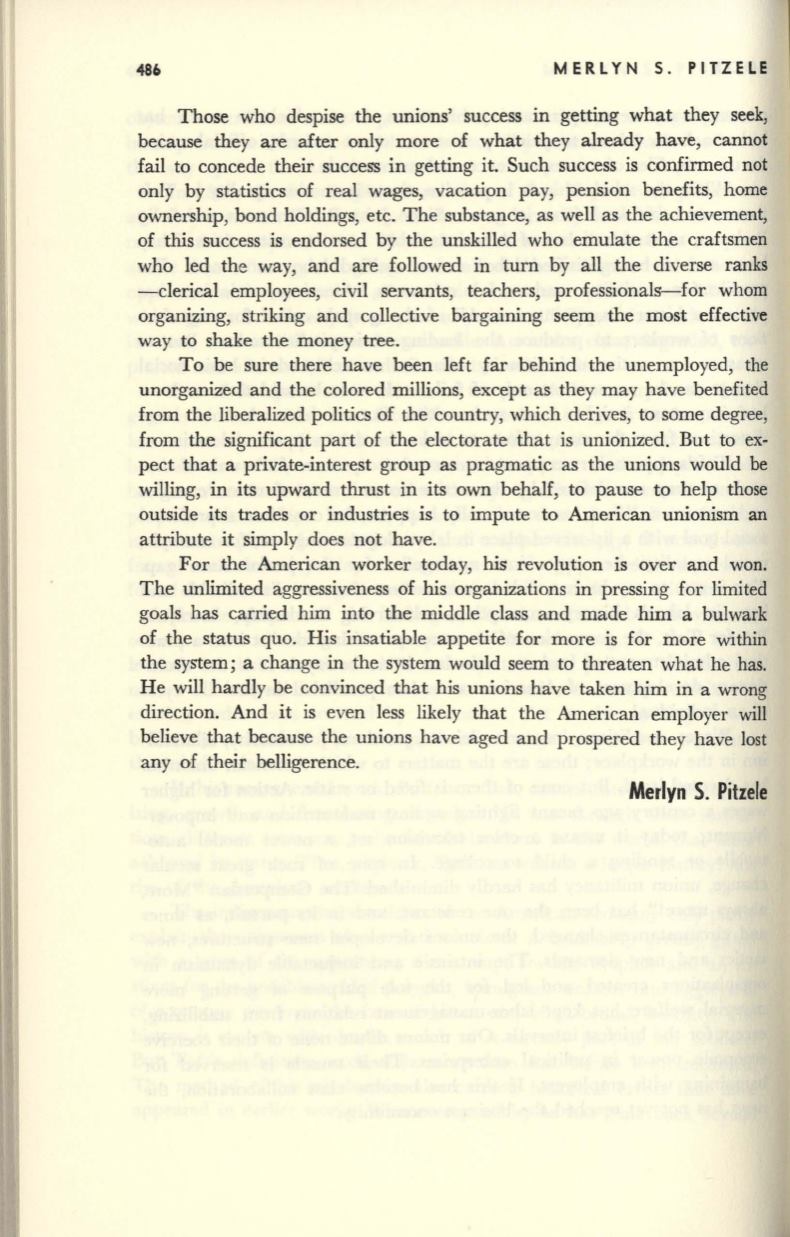
486
MERLYN S. PITZELE
Those who despise the unions' success in getting what they seek,
because they are after only more of what they already have, cannot
fail to concede their succeS'S in getting it. Such success is confirmed not
only by statistics of real wages, vacation pay, pension benefits, home
ownership, bond holdings, etc. The substance, as well as the achievement,
of this success is endorsed by the unskilled who emulate the craftsmen
who led the way, and are followed in tum by all the diverse ranks
-clerical employees, civil servants, teachers, professionals-for whom
organizing, striking and collective bargaining seem the most effective
way to shake the money tree.
To be sure there have been left far behind the unemployed, the
unorganized and the colored millions, except as they may have benefited
from the liberalized politics of the country, which derives, to some degree,
from the significant part of the electorate that is unionized. But to ex–
pect that a private-interest group as pragmatic as the unions would
be
willing, in its upward thrust in its own behalf, to pause to help those
outside its trades or industries is to impute to American unionism an
attribute it simply does not have.
For the American worker today, his revolution is over and won.
The unlimited aggressiveness of his organizations in pressing for limited
goals has carried him into the middle class and made him a bulwark
of the status quo. His insatiable appetite for more is for more within
the system; a change in the system would seem to threaten what he has.
He will hardly be convinced that his unions have taken him in a wrong
direction. And it is even less likely that the American employer will
believe that because the unions have aged and prospered they have lost
any of their belligerence.
Merlyn S. Pitzele


